Did you know Bangkok is rapidly outpacing New York City as a preferred destination for international schooling? Yes, it's true, and even seasoned expats are surprised by this shift.
With globalization reshaping education, parents are seeking diverse, enriched learning environments. Right now, choosing the right school could redefine your child’s future.
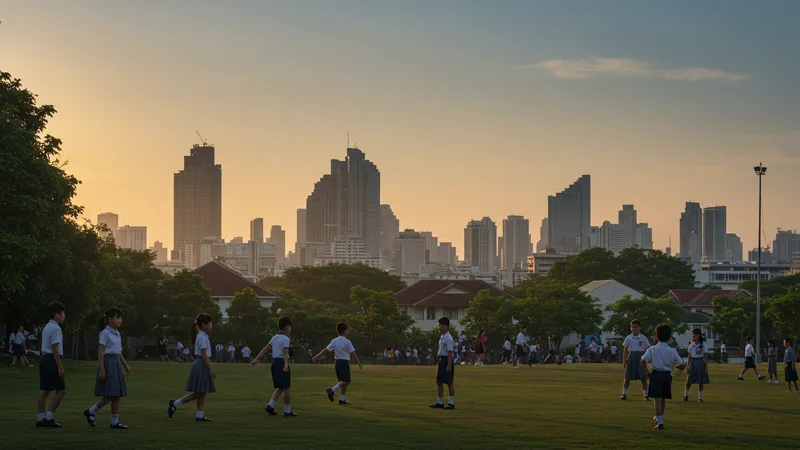
Most people assume New York is the undisputed leader in education, but Bangkok is offering a stunning challenge. They're rolling out innovative curricula that leverage cutting-edge technology and cultural immersion like never before. Think Finnish-style education, but with a Thai twist. But that’s not even the wildest part…
Bangkok schools are achieving these feats at a fraction of the cost. While New York leans on its prestigious legacy, Bangkok is quietly redefining excellence. The growing economy and cultural appeal are drawing leading educators from around the world, integrating fresh perspectives into traditional methodologies. The synergy is creating a learning environment unparalleled in Asia or beyond. What happens next shocked even the experts…
Over the past decade, Bangkok has undergone a revolution in education. The city is now home to over a hundred international schools, offering curricula ranging from British to American, even Australian. This diversification caters to an eclectic international demographic, nurturing a global mindset among students. But there’s one more twist…
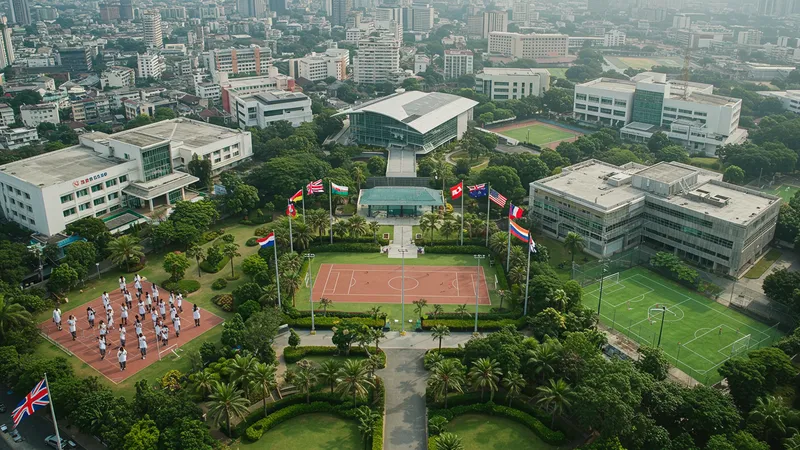
These institutions are not just about academics; they focus on holistic development. Parents find themselves drawn to features such as mindfulness programs, advanced sports facilities, and robust arts initiatives. Meanwhile, New York schools, while rich in history, often struggle with overcrowding, which Bangkok cleverly sidesteps through strategic planning and moderate class sizes.
Considering the lower cost of living, Bangkok presents an attractive offer not just for students but also for teachers. Highly qualified educators find the city appealing for its vibrant culture and affordable lifestyle, leading to increased retention and passionate teaching staff. This element brings a more personalized education experience. But what you read next might change how you see this forever.
Another compelling factor is Thailand’s rapid technological advancements, which have trickled down into the education sector. Bangkok schools are integrating AI and VR into classrooms, revolutionizing the learning process. New York is known for its tech prowess, yet Bangkok’s schools are making their mark by offering these cutting-edge experiences sooner. This could redefine your expectations of a “modern” education.
For many parents, the cost of education is a primary concern. International schooling doesn't come cheap, but the difference between Bangkok and New York is striking. While both cities offer top-notch education, tuition fees in Bangkok are notably lower. This begs the question: Are students in New York really getting what they pay for?
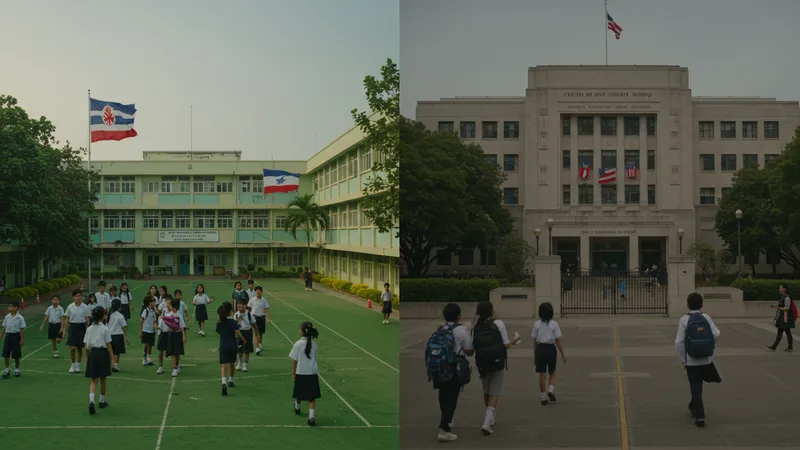
In Bangkok, fees are often half that of their New York counterparts, yet the quality of education and facilities might surprise you. Lower operational costs allow Bangkok schools to invest in better resources and student experiences. It’s a win-win scenario for budget-conscious parents. This pricing strategy has attracted countless families from diverse backgrounds, enriching the melting pot of cultures.
Scholarships and financial aid in Bangkok are also more accessible, broadening the opportunity for families to afford elite education. Many schools offer flexible payment plans, making the top-tier educational experience attainable for a wider audience. This inclusivity is becoming a hallmark of Bangkok’s schooling system.
However, it's important to delve deeper—is this a sustainable model? The burgeoning popularity could strain resources, but Bangkok schools show no signs of slowing innovation or expansion. They continue to build new campuses and hire skilled teachers from across the globe. An intriguing development indeed, but there’s more to uncover…
Bangkok’s embrace of technology is perhaps one of its most significant advantages. Schools here are arming students with the digital skills needed for the future, integrating technology right into the curriculum. The use of tablets and laptops in classrooms has become standard, serving to enhance learning rather than distract from it.
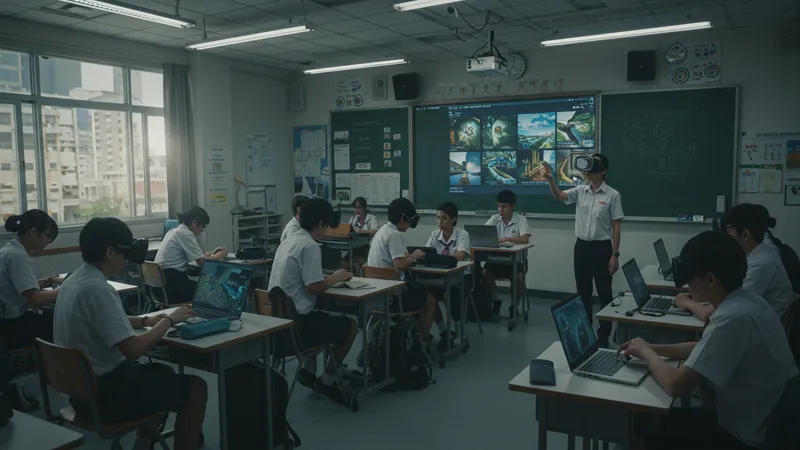
Virtual reality experiences allow students to explore distant cultures and ecosystems without leaving the classroom, an immersive learning method that New York schools are only beginning to pilot. Bangkok’s tech-centric approach prepares students to compete on a global scale, fostering innovation and critical thinking skills.
Cloud-based platforms are regularly employed for project collaboration and communication, nurturing teamwork and creativity. In contrast, some New York schools are still grappling with the digital divide. Bangkok’s forward momentum makes the city a trailblazer in educational technology.
It's not just about gadgets; it's about fostering a mindset ready to embrace the future. This technological edge has positioned Bangkok as an emerging educational powerhouse. But there’s still much more at play in this dynamic landscape…
One of Bangkok’s key attractions in education is the unique cultural immersion it provides. The city’s vibrant cultural tapestry is woven into the very fabric of its schools, offering students firsthand exposure to a variety of global perspectives. This diverse environment fosters international-minded citizenship in a way that’s harder to replicate in urban New York’s bustling districts.
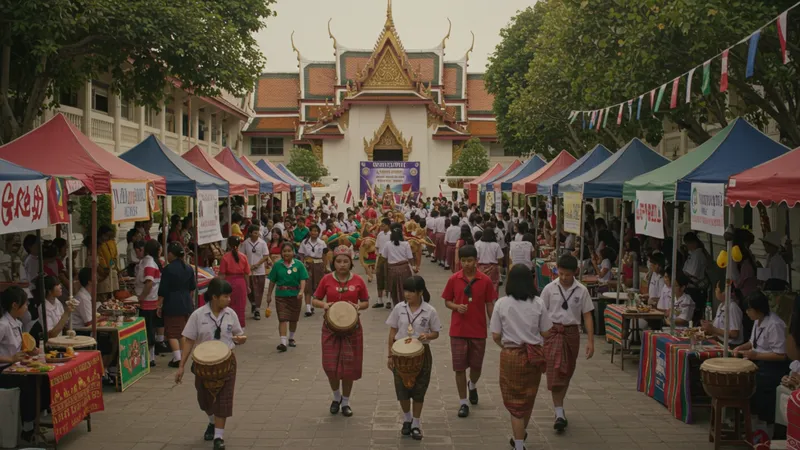
Celebrations of world cultures and traditions are a staple in Bangkok’s school calendar. Events like international day fairs and cultural festivals provide students with a deeper understanding and appreciation of their global peers. These experiences broaden horizons and encourage intercultural competence, a valuable trait in today’s interconnected world.
Moreover, the language opportunities in Bangkok are incredible. Students often become trilingual, learning Thai alongside English and a third language, boosting cognitive flexibility. Contrast this with the more rigid language programs typically seen in New York's institutions, and the advantage becomes apparent.
Every turn reveals another surprise in how Bangkok is reshaping the future of education. The cultural experience is just one piece—there’s more complexity to unravel as we dive deeper into the educational phenomena occurring right in the heart of Bangkok. What lies ahead will challenge everything you thought you knew…
From the viewpoint of educators, Bangkok offers a playground for innovation rarely found elsewhere. Teachers enjoy a creative freedom that not only highlights their professional skills but also motivates them to push educational boundaries. It’s this freedom that often leads to breakthrough teaching methods that significantly impact student learning outcomes.
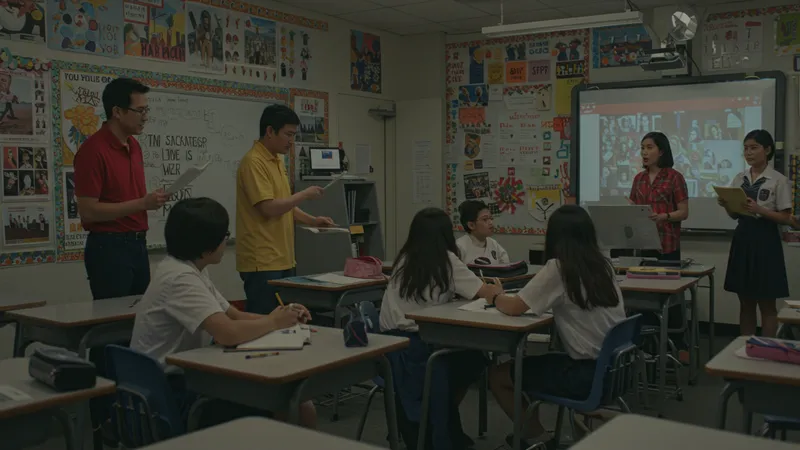
Looking at the comparative model, New York teachers often feel confined by strict curricula and standardized testing pressures. Meanwhile, Bangkok's schools promote exploration and personalized instruction, allowing educators to tailor lessons that resonate with their students uniquely. It’s like comparing jazz to classical music, where one offers improvisation while the other adheres to predefined notes.
Additionally, Bangkok schools often support continuous professional development, offering workshops and funding for global educational conferences. These opportunities ensure that teachers remain at the forefront of educational trends and methodologies, ultimately benefiting their students.
It’s clear that the stakes in Bangkok’s education landscape are high, but what’s at risk is not failure—it’s perpetual improvement. What you’ll discover on the next page might ignite your curiosity even more, as we explore a controversial strategy that Bangkok schools are embracing…
Bangkok is not afraid to experiment with alternative pedagogies that you might not expect in a traditional setting. Montessori and Reggio Emilia approaches, long popular in the west, have found new life in Bangkok's innovative schools. They emphasize learner autonomy, community interaction, and experiential learning.
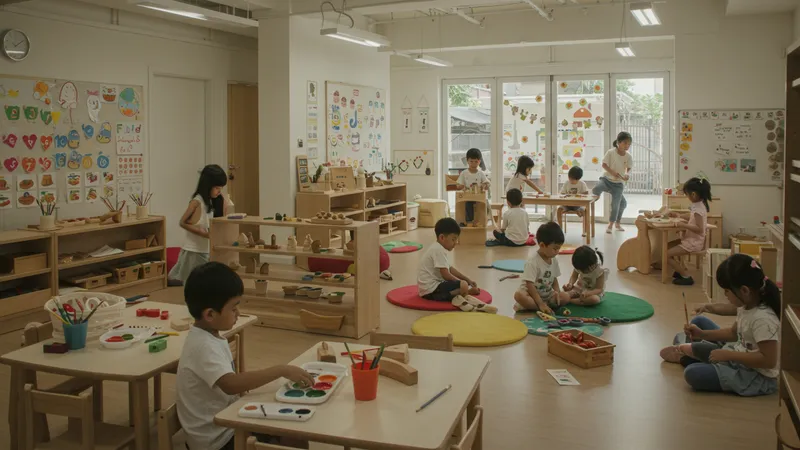
In a conventional setting like New York, these methods might be relegated to niche institutions, but in Bangkok, they’re gaining mainstream acceptance. Students in these programs revel in an educational model that respects their individuality. They learn to question, explore, and create, skills necessary for navigating the complexities of modern life.
But it's not just about embracing the new; it’s about integrating the old. Bangkok’s educational strategies blend these modern methodologies with time-tested educational practices, creating a hybrid model that adapts according to the needs of its learners.
The innovation shows no signs of stopping. Schools continue to refine and redefine the boundaries of conventional education. It's a bold move, and what Bangkok unveils next could very well redefine global educational paradigms. Stay with us as this journey continues…
Perhaps one of Bangkok’s most overlooked strengths is the high degree of parental involvement in education. Schools actively engage parents in their child’s academic life from volunteering opportunities to curriculum feedback sessions. In Bangkok, education is seen as a community effort rather than just a service provided by the school.
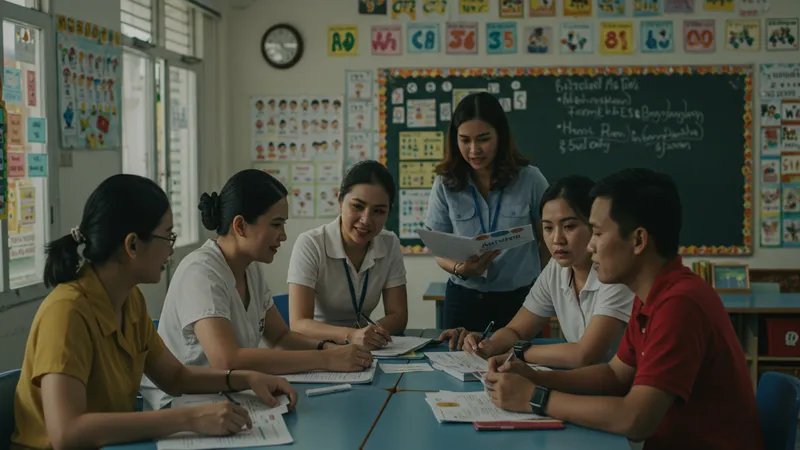
This participatory approach creates a supportive network that benefits the student. Children see that education is valued by their family and community, which often translates to increased motivation and engagement in their studies. New York, with its frenetic pace, might find it challenging to emulate this level of parental integration.
The relationship between schools and parents in Bangkok is symbiotic. Parents contribute their expertise and resources, making them an invaluable asset. This might involve parents leading clubs, organizing cultural events, or supporting peer groups, fostering a robust educational ecosystem.
Yet, with these advantages come questions about where parental influence begins to overstep educational boundaries. Next, you’ll see how this delicate balance plays out on the educational stage, where passions run high and stakes are even higher…
One fascinating aspect of education in Bangkok is how school performances aren't just student showcases; they're community festivals. Schools invite parents, local artists, and businesses to contribute and participate. These events become extraordinary cultural exchanges and strengthen community bonds.
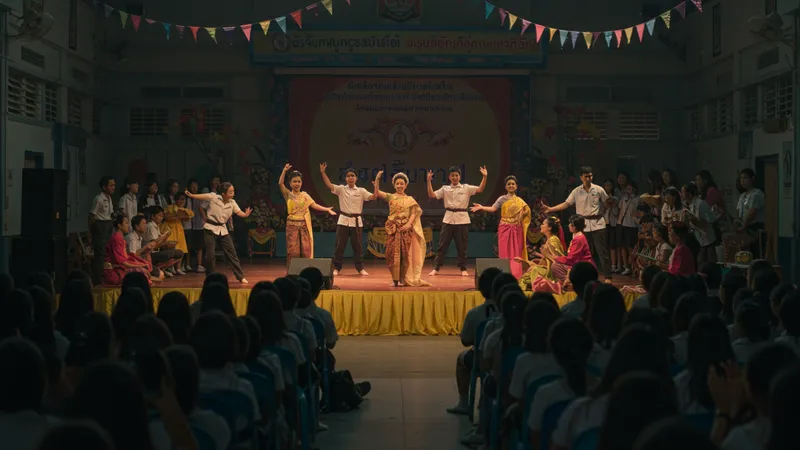
But the involvement doesn’t stop there. Schools are introducing interactive feedback tools that allow parents to contribute their perspectives on schooling. This engagement goes beyond what's typically expected in a New York school’s PTA meeting, redefining conventional parental roles.
While these initiatives promote school-community synergy, they raise questions about boundaries. Are schools in Bangkok accounting for a healthy balance between parental involvement and professional educational standards?
There’s no denying the transformative potential here. The interaction fosters a sense of belonging and personal investment in the child’s education, yet it remains a fine line to navigate. Such insights pave the way for our next exploration…
In preparing students for the future, Bangkok is taking a visionary approach. Courses are no longer limited to conventional subjects; instead, they focus heavily on skills like critical thinking, resilience, and adaptability. The question isn't just what students know, but how they apply their knowledge creatively.
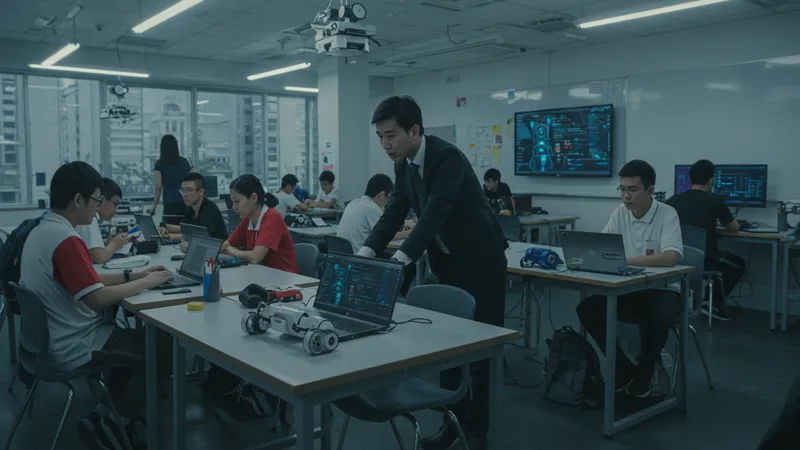
Some schools partner with tech companies, introducing courses in coding, robotics, and data science as early as elementary school. This education model provides Bangkok students with a head start in rapidly evolving industries. Meanwhile, New York is playing catch-up as educational bureaucracies slow the adoption of similar forward-thinking programs.
Building these curriculums involves risk-taking and flexibility. How do schools balance cutting-edge courses with foundational skills? Bangkok schools have shown a willingness to innovate, constantly iterating based on student feedback and success metrics.
This ambitious adaptation raises a pivotal question: how adaptable are traditional education systems to such revolutionary change? The answer lies ahead and what’s coming next will strike a chord with parents and educators worldwide…
Bangkok's education system has also stood out for its adept handling of crises. The swift shift to online learning during global disruptions showcased their leadership and proactive policy-making. Digital skills previously integrated into the curriculum came in handy, ensuring no student got left behind.
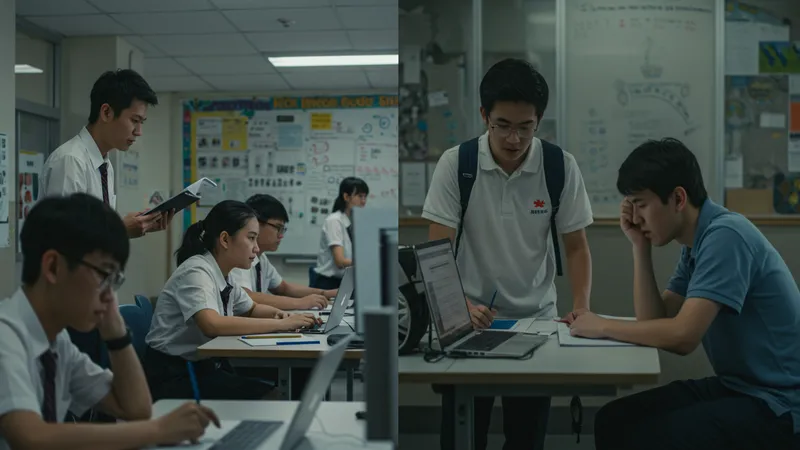
New York, with its established educational infrastructure, faced bureaucratic hurdles during transitions, impacting the effectiveness of remote learning. Bangkok, meanwhile, learned lessons quickly and implemented them effectively, demonstrating adaptability.
Emergency drills for situations like natural disasters are crafted with precision here. They’re not just procedural; they include community and parental involvement, ensuring the emotional and mental readiness of all involved parties.
These crisis management insights contribute to a resilient educational culture, ready for whatever the future holds. Join us as we dive into the next surprising revelation about Bangkok’s educational transformation…
Bangkok's rise in the educational arena offers both practical lessons and inspiration. This global city isn’t just catching up with New York; it’s setting its own pace, offering quality education with a broader worldview. But is this pace sustainable, or just a fleeting trend?
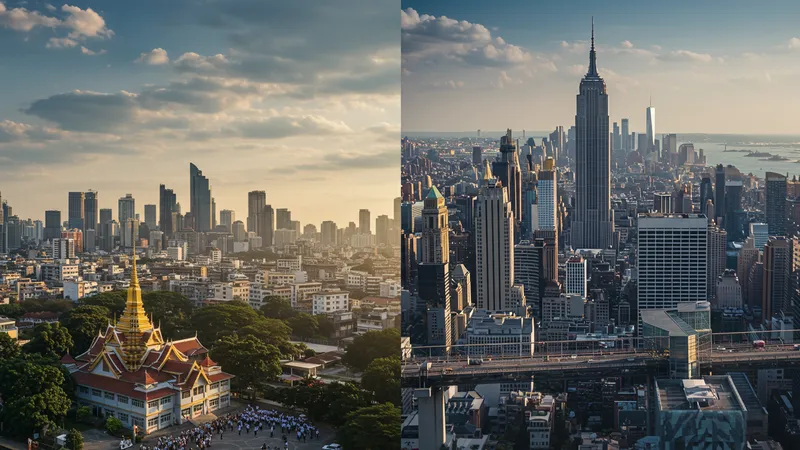
Educational innovation, cultural integration, cost-effectiveness, and crisis management are components in which Bangkok schools excel. While New York maintains its reputation, it has room to draw inspiration from Bangkok's ambitious evolution. What the world is witnessing is not just a rivalry; it’s an opportunity for educational exchange where both sides can gain.
The future of education lies in adaptability, global-mindedness, and community engagement. Schools in Bangkok have demonstrated that with the right mindset and resources, it’s possible to redefine what we understand as world-leading education.
Share this article with fellow parents, educators, or anyone intrigued by global educational trends. Bookmark it as a guide for current and future educational decisions. What lies ahead in the global education race might just surprise the world.